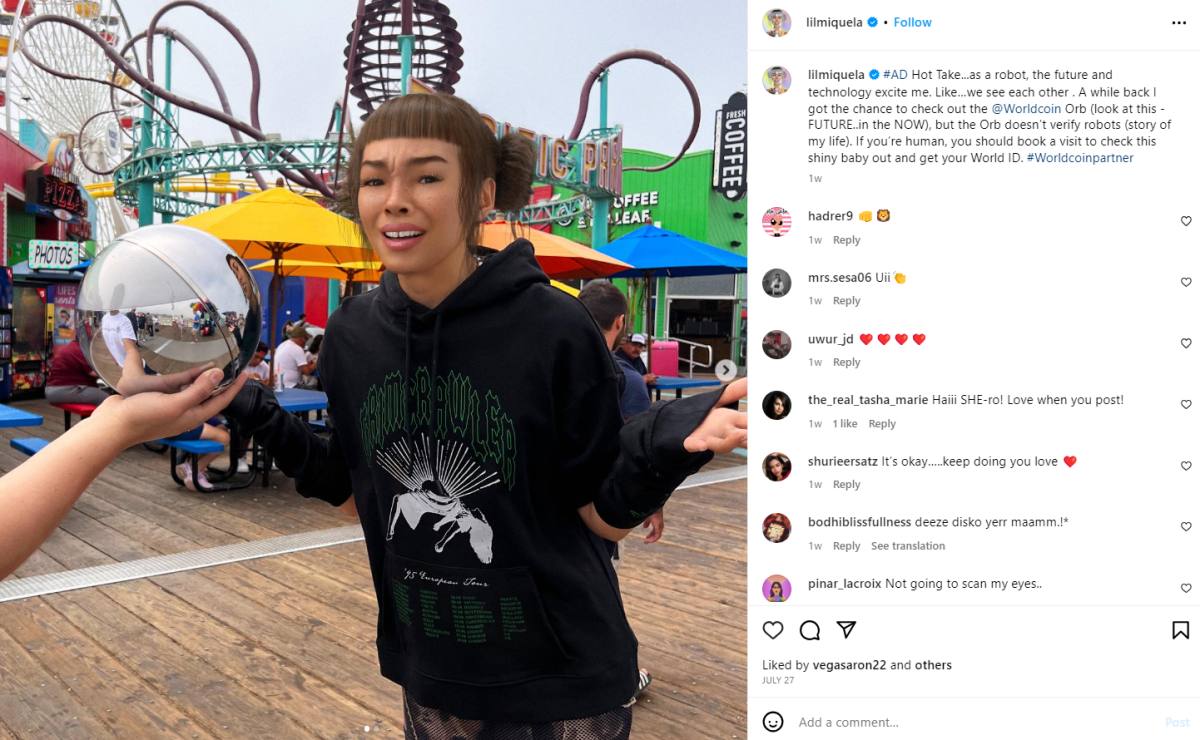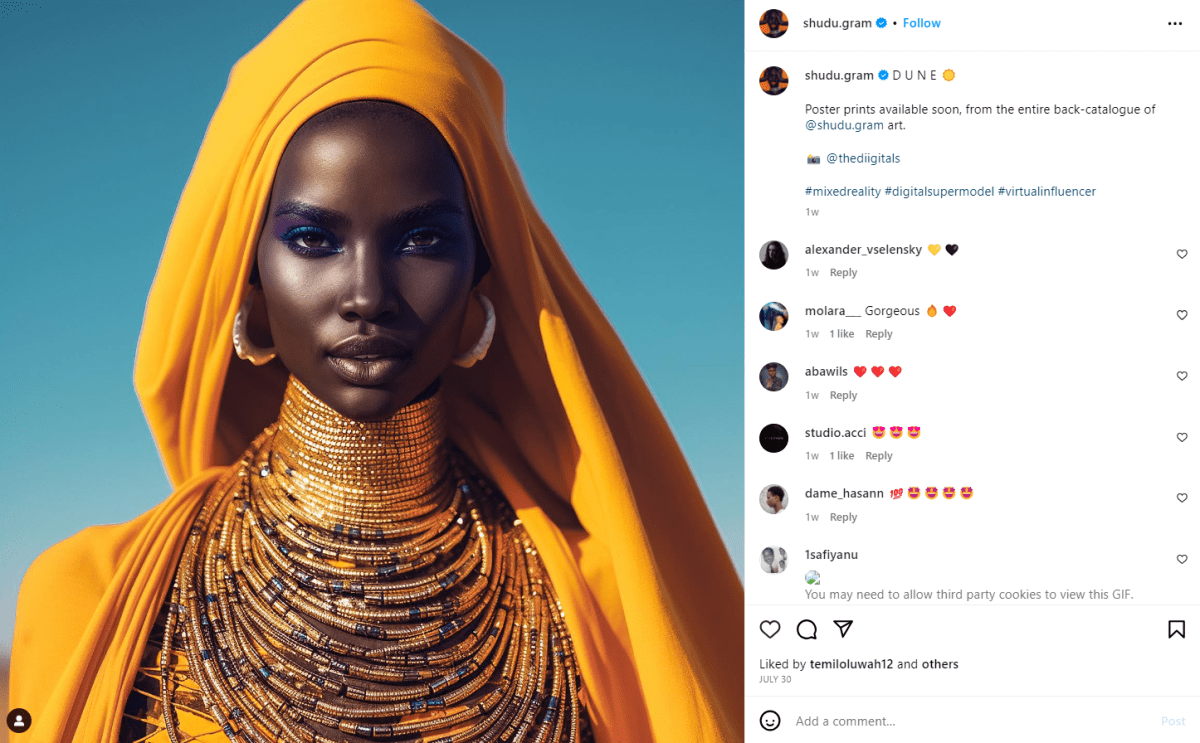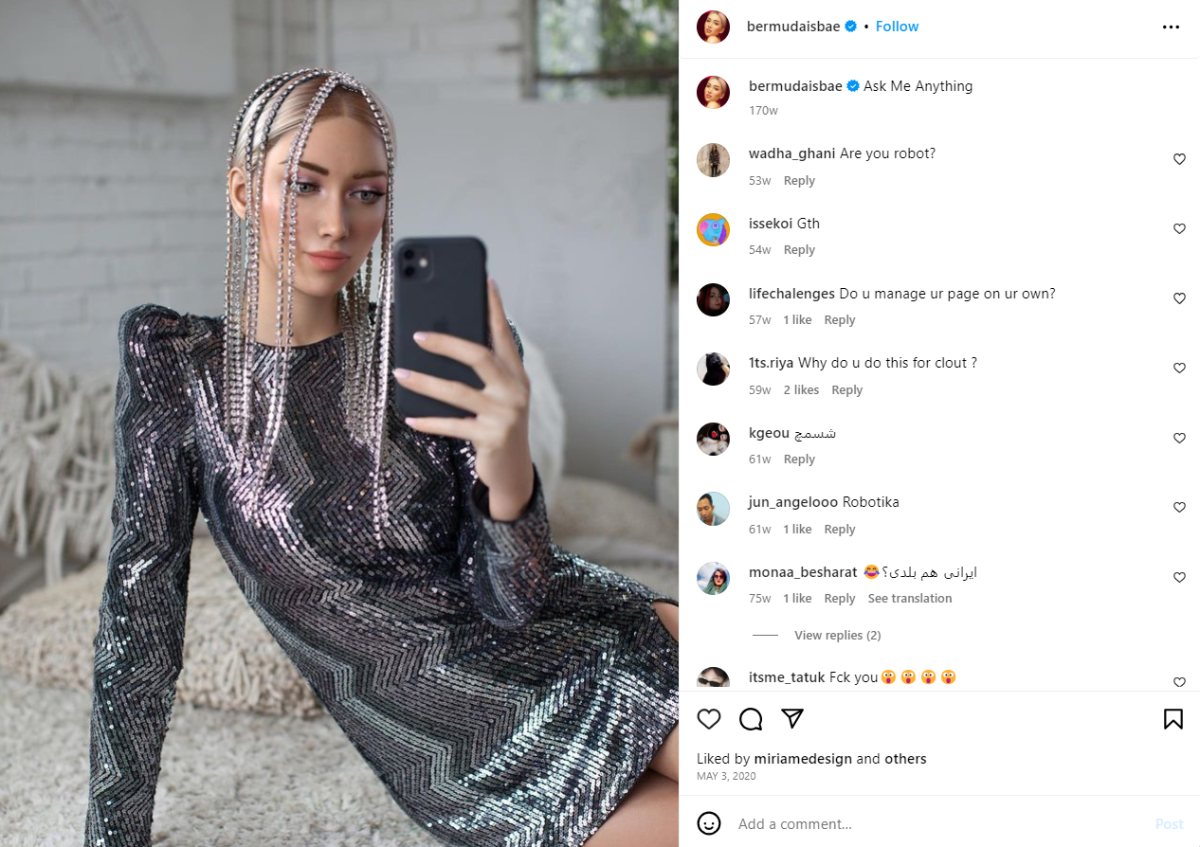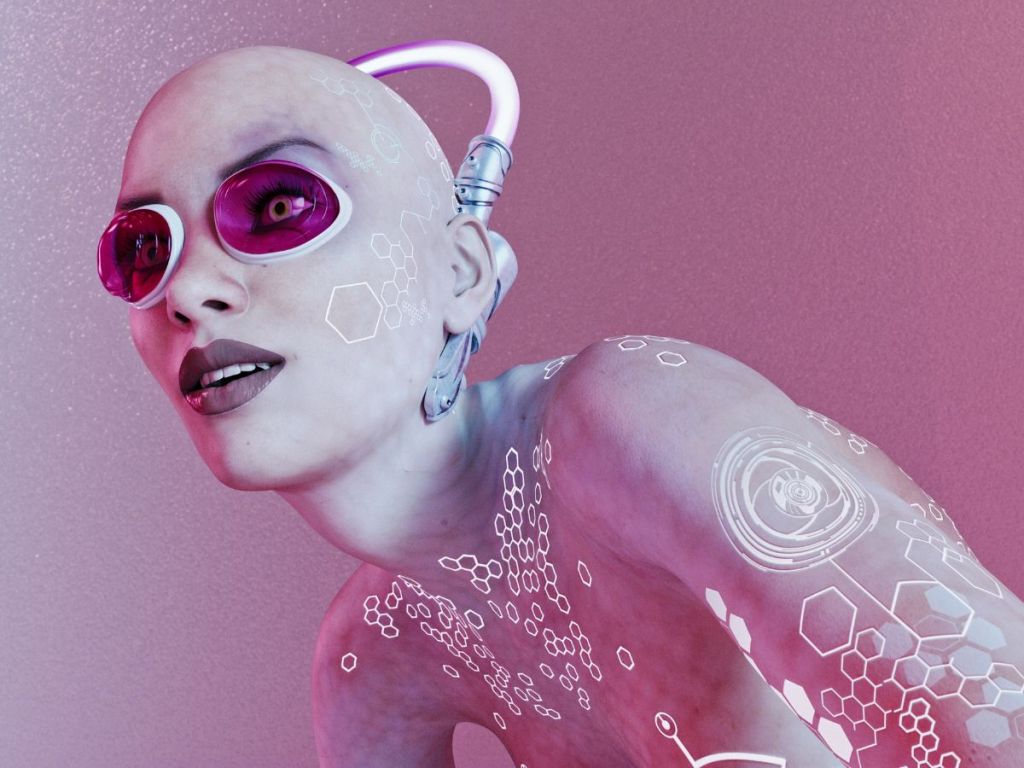The rise of AI influencers is closer than you think, and some of them might even look familiar to you.
A vivid example of a Computer-Generated Imagery (CGI) influencer is Lil Miquela, who has more than 2.7 million followers on Instagram and composes intriguing posts with her robot-like appearance. “She” even claims has been hired by Worldcoin to promote their sign-up process, using an orb.

Miquela was nominated by Time magazine as one of the most influential people on the Internet in 2018.
Virtual influencers like Miquela, Bermuda and Shudu have gained significant traction in recent years. They have the advantage of being highly customisable, allowing brands to create a spokesperson that perfectly fits their image.

Influencer marketing is a big deal. It was valued at $16.4 billion in 2022, an 18.8% year-on-year increase.
With the rise in the quality of CGI technology, it makes sense that digital celebrities would come for a piece of the influencer action. So, what does the future hold for human influencers?

The Role of AI in Content Creation
AI has brought new opportunities to services and platforms. Instead of spending hundreds of hours gathering and analysing content, an AI can do it for you.
It can also provide visuals without having to hire artists. Midjourney and Dall-E are the most well-known examples. Music is also being created by AI, and the tunes are being used in advertising without having to source musicians. AI can also generate personalised website designs and logos based on user preferences.
AI can also revolutionise how we create and edit content. AIs can analyse vast amounts of text data to identify patterns and trends, enabling people and businesses to generate written content mimicking human-like writing styles.
For instance, AI is gradually being integrated into newsrooms worldwide to assist human reporters with long-form work such as fact-checking and data gathering.
At the moment AI requires human assistance, because people have a deeper understanding of their audience, and what they like. However, AI can learn these things so that we will soon see AI-generated content almost everywhere.
The Future of AI Influencers
The trend of investing in influencers is set to change.
There will be an increase of AI-generated content, however, user engagement with such content may decrease. AI-generated content may not appear genuine. In other words, it may fail to match the style and voice of a human influencer, making it more challenging to stand out.
While AI-generated content is far from ideal, it will improve over time. Predominantly, if managed by professionals, it can be driven to perfection.
However, one challenge could persist — if users recognise that they are having a machine interaction, would that bother them?
Will AI influencers replace human bloggers? Let’s keep watching.





